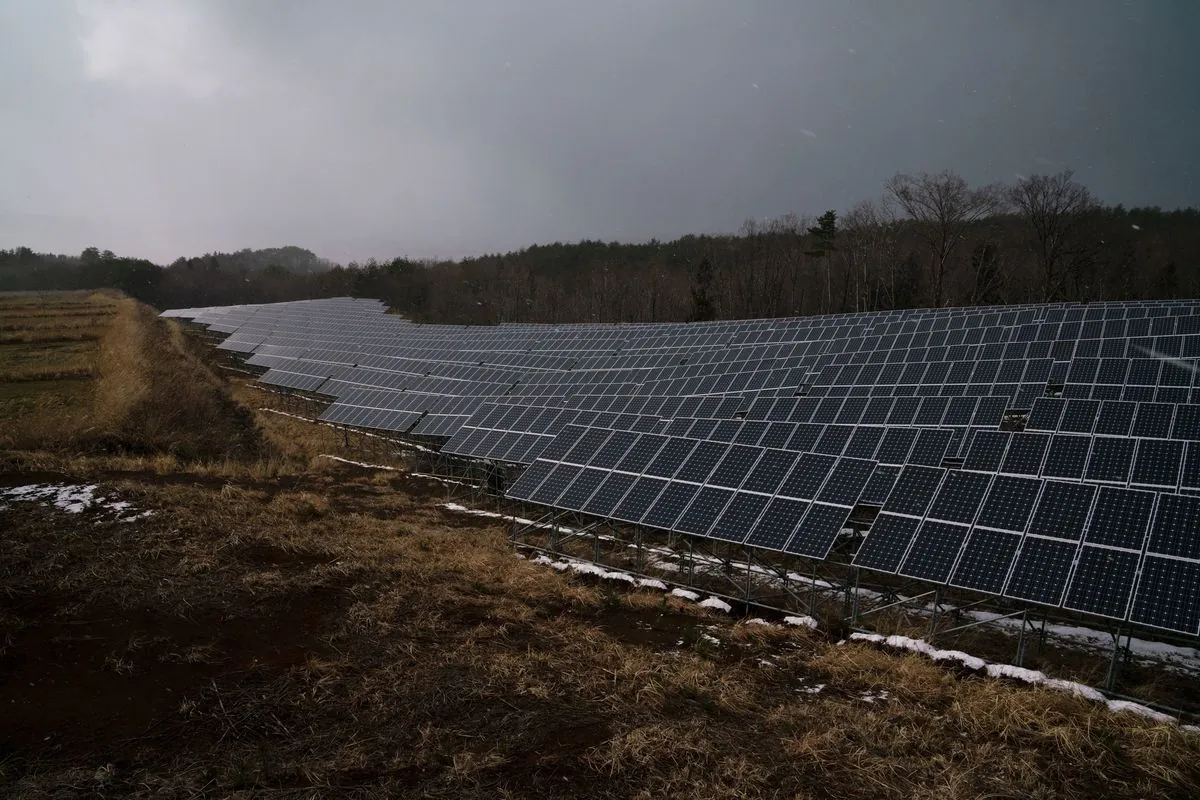In a significant policy development, Yoji Muto, Japan's newly appointed Minister for Economy, Trade and Industry (METI), has outlined the country's energy strategy under the leadership of Prime Minister Shigeru Ishiba. This announcement comes as Japan, the world's third-largest economy by nominal GDP, continues to grapple with its energy future in the aftermath of the 2011 Fukushima nuclear disaster.
Minister Muto stated, "We can use renewable power to the maximum, and we will restart nuclear power, the safe one, as much as possible." This balanced approach reflects a shift from Ishiba's earlier campaign stance, which had advocated for phasing out nuclear power. The policy aims to address Japan's unique energy challenges, given its limited domestic resources and heavy reliance on imports.
Japan's energy landscape has undergone significant changes since the Fukushima incident, which was the most severe nuclear accident since Chernobyl. In 2023, renewable energy sources, including solar, wind, and hydropower, accounted for over 25% of the country's power generation mix. This growth aligns with Japan's ambitious target of achieving 22-24% renewable energy in its power mix by 2030 and becoming carbon neutral by 2050.
The country's commitment to renewable energy is evident in its global leadership in solar photovoltaic technology and manufacturing. Additionally, Japan ranks among the top 10 countries in geothermal power capacity, leveraging its unique geological features with over 100 active volcanoes.
However, the role of nuclear power remains a contentious issue. Currently, Japan operates eleven nuclear reactors, a significant reduction from its pre-Fukushima fleet. These reactors provide nearly 11 gigawatts of electricity, contributing to a notable 8% decrease in LNG imports in 2023. This reduction is crucial for Japan, the world's largest LNG importer, as it seeks to manage energy costs and enhance energy security.
The restart of nuclear plants faces challenges, as exemplified by Tokyo Electric Power Co's (TEPCO) efforts to reactivate the Kashiwazaki-Kariwa plant, the world's largest nuclear power facility. Local concerns about safety continue to delay its reopening, highlighting the complex interplay between energy policy and public sentiment.
Japan's energy strategy, known as the "3E+S" (Energy Security, Economic Efficiency, Environment, and Safety), reflects the country's multifaceted approach to its energy challenges. This policy has driven investments in diverse areas, including hydrogen as a future energy source and the development of one of the world's most advanced smart grid systems.
The upcoming House of Representatives election on October 27, 2024, may influence the trajectory of Japan's energy policy. As Mika Ohbayashi, director of the Renewable Energy Institute in Tokyo, notes, the election results and dynamics within the ruling Liberal Democratic Party (LDP) will play a crucial role in shaping future discussions on nuclear energy.
"We can use renewable power to the maximum, and we will restart nuclear power, the safe one, as much as possible."
As Japan navigates its energy future, it continues to be a global leader in energy efficiency technologies and conservation measures, a legacy of its response to the 1970s oil crisis. The country's energy consumption per capita remains one of the lowest among developed nations, showcasing its commitment to sustainable energy practices.
In conclusion, Japan's new leadership is charting a course that balances the use of nuclear power with an aggressive push towards renewable energy. This strategy aims to ensure energy security, manage costs, and meet environmental goals, all while addressing the complex legacy of the Fukushima disaster and public concerns about nuclear safety.
